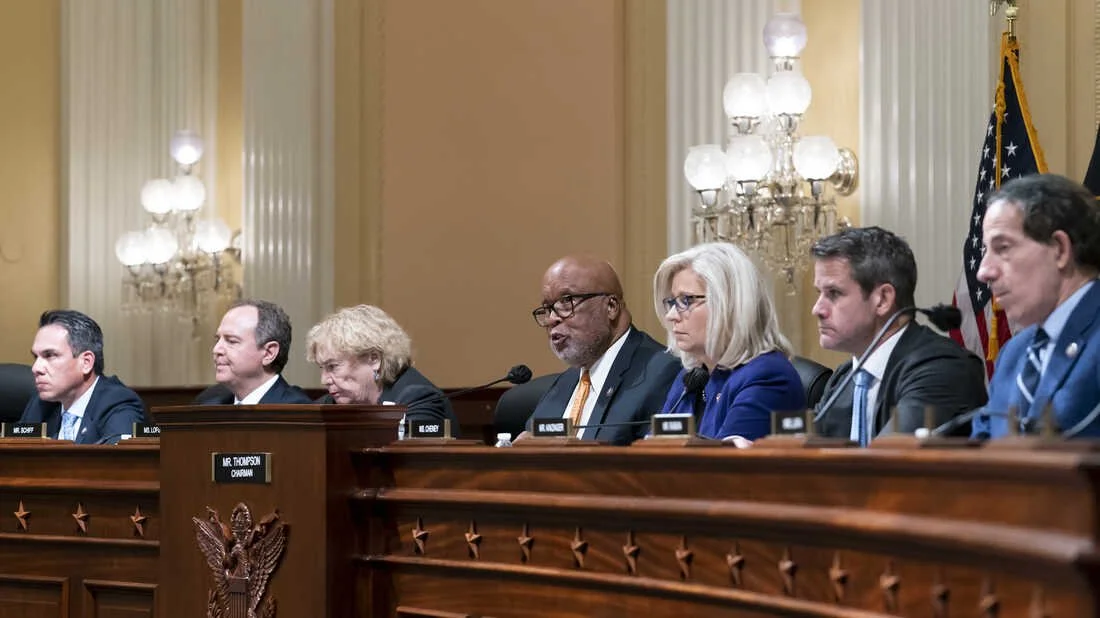January 6th’s Second Attack on the Constitution?
The House select committee meets on October 19th to discuss the role of Trump ally Steve Bannon in the riots. Source: NPR
No matter your view on January 6th, the undeniable fact is that, regardless of the circumstances, those who stormed the Capitol that day broke the law and violated our constitutional republic’s norms. While subsequent trials have already brought many to justice, the actions of politicians and prosecutors may be doing more to denigrate our Constitution than anyone at the Capitol did.
For instance, last December, Representative Bernie Thompson, chairman of the January 6th committee, asserted that when former Trump associates invoke their right against self-incrimination, "in some instances that says you are part and parcel, guilty to what occurred."
Thompson likely made this statement out of frustration due to several high-ranking Trump associates invoking this right, denying the committee information about an event President Biden described as the day the Constitution "faced the gravest of threats." Yet, his statement only adds to those threats as it directly contradicts the Supreme Court’s Fifth Amendment interpretation in Griffin v. California — that any insinuation of a defendant's guilt based on the invocation of their Fifth Amendment right violates their Fifth Amendment right to avoid witnessing against themselves. This right is crucial as it prevents the state from coercing testimony from criminal and innocent citizens who have reason to fear prosecution, thereby restricting the state's ability to coerce citizens, avoiding both abuse and wrongful convictions. Considering that the committee has members like Adam Schiff, who has a contentious history with former President Trump, both Trump associates who fear the committee twisting their words into wrongful convictions and those who are guilty are in their right to invoke the Fifth Amendment. Hence, as a public official sworn to uphold the Constitution, Thompson’s criticism of the legitimate use of the Fifth Amendment weakens societal conviction in a vital due process guarantee.
Another example of public officials coming into conflict with the Constitution over January 6th related proceedings is the case of a Texas man named Lucas Denney, whom police arrested on December 13th in Texas. After the court ordered his extradition to Virginia on December 17th, Denney was lost in the jail system and did not arrive in Virginia until January 31st. During and after this time, prosecutors made multiple efforts to set up an initial appearance for Denney, yet the court placed none on the docket. As a result, Denney remained in jail until March 5th, when his defense team filed an emergency motion to release him, citing the 82 days he had gone without being indicted. Such a gap between arrest and indictment is significantly longer than the 30 days permitted under the Speedy Trial Act of 1974, the law that gives definite meaning to the Sixth Amendment's speedy trial clause. The prosecution did eventually obtain a grand jury indictment for assault on a police officer with a dangerous weapon on March 7th, the same day that the court scheduled the hearing to address the motion to release.
Aside from obtaining the single indictment, prosecutors also filed a response to the motion for release, admitting that the defendant’s Sixth Amendment claim was legitimate but requesting that the case be dismissed without prejudice, meaning that it could be re-prosecuted in the future. To support this request, prosecutors proffered several justifications. First, they claimed to have "mistakenly believed that the 30 days would be calculated from Denney’s first appearance in this district," which is in line with their contention that there was "no evidence of bad faith." They also alleged that Denney committed a "criminal offense unparalleled in American history.”
However, it begs the question: how can a criminal offense unparalleled in American history go without action for 82 days? While many see the accusations against Denney as extreme, the Sixth Amendment exists to ensure the government cannot abuse the accused, even those alleged to have committed the most heinous crimes. Moreover, this is not the first instance of the state sluggishly handling a January 6th case. In those other cases, they have tried to justify it by referencing the mass amount of discovery material. However, as Trevor McFadden, a judge presiding over one of those January 6th cases, said, "Freedom is also important."
It is imperative to remember that our civil liberties, while guaranteed to everyone, are especially important for those who draw the ire of society, as they are most at risk of abuse. So, while we need to hold people accountable in January 6th cases, we must also remain firm in our principles. Without them, America is in grave danger from the possible tyranny that would make January 6th's injustice pale in comparison.

